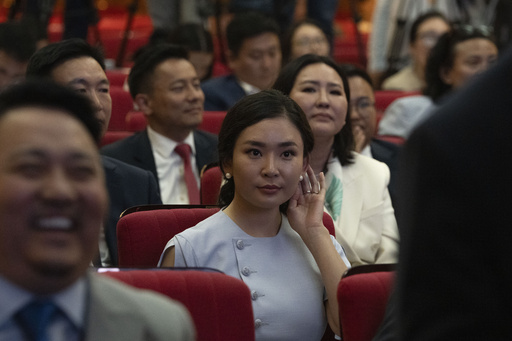Tsenguun Saruulsaikhan, a young member of Mongolia’s parliament, expresses dissatisfaction with the below-cost electricity rates in her country, seeing them as remnants of its socialist past. Mongolia grapples with power plants dating back to the Soviet era and faces frequent outages in some regions, while heavy smog blankets the capital Ulaanbaatar during the winter due to coal burning for heating purposes.
Assigned to a new parliament at the age of 27, Tsenguun, the youngest member, reflects on Mongolia’s transition towards democracy post its one-party communist rule lasting for six decades. The populace has grown disillusioned with established political parties and lawmakers, perceiving them as benefiting from the country’s mineral wealth rather than focusing on poverty alleviation. Recent elections saw the ruling Mongolian People’s Party maintaining control but with a slim majority, as the main opposition Democratic Party experienced a significant resurgence.
Tsenguun advocates for a vision aligned with small government principles akin to the Republicans in the United States. She emphasizes the need for reduced government intervention, fostering individual freedom, and curbing corruption. With concerns over press freedom following the detention of journalists, Tsenguun stresses the importance of her generation defending the liberties gained post the communist era.
Noteworthy in the latest election was the increased turnout of young voters, hinting at a shifting political landscape. Female representation in parliament rose to 25%, yet female candidates faced challenges in competitive districts. Tsenguun, as a young female lawmaker, acknowledges the dual expectations placed upon her due to gender and age stereotypes, aiming to prove her merit beyond tokenism.
The ruling People’s Party attempts a repositioning in response to public discontent by appointing a relatively youthful prime minister, Oyun-Erdene Luvsannamsrai. While promising a new era for Mongolia, the extent of governmental reforms and the trajectory of Mongolian democracy remain uncertain despite Tsenguun’s aspirations for change. Recall is that Tsenguun’s early exposure to life in Austria shaped her desire to improve her homeland, driving her to pursue a political path for the betterment of Mongolia.
